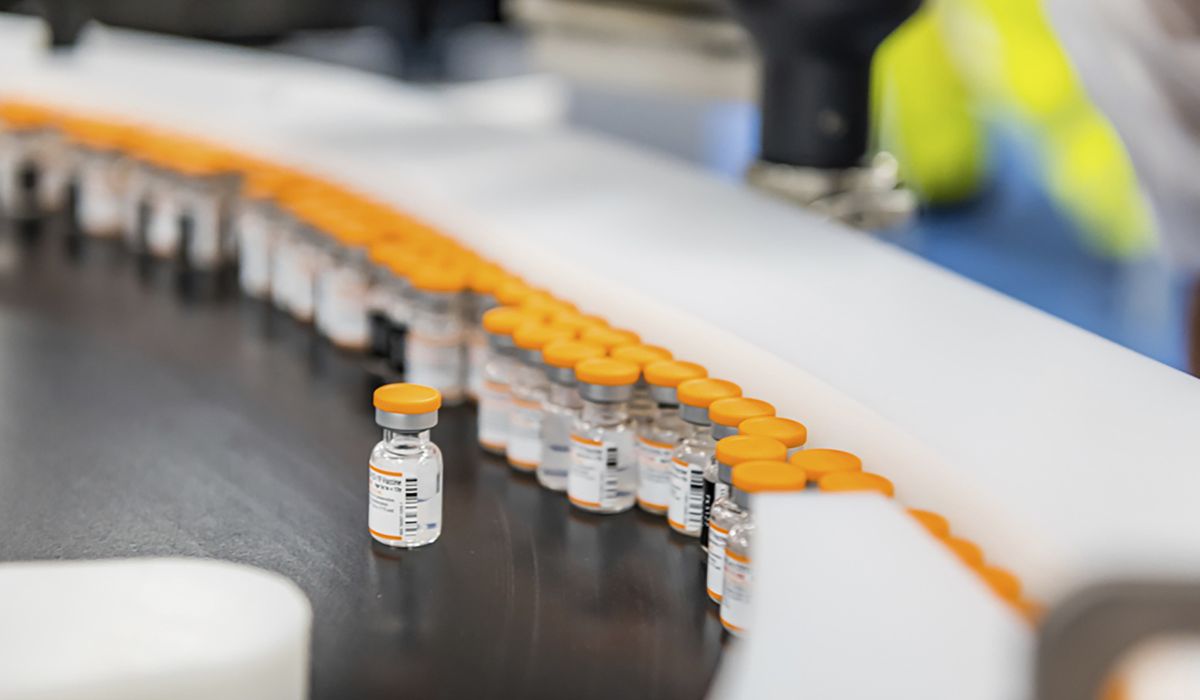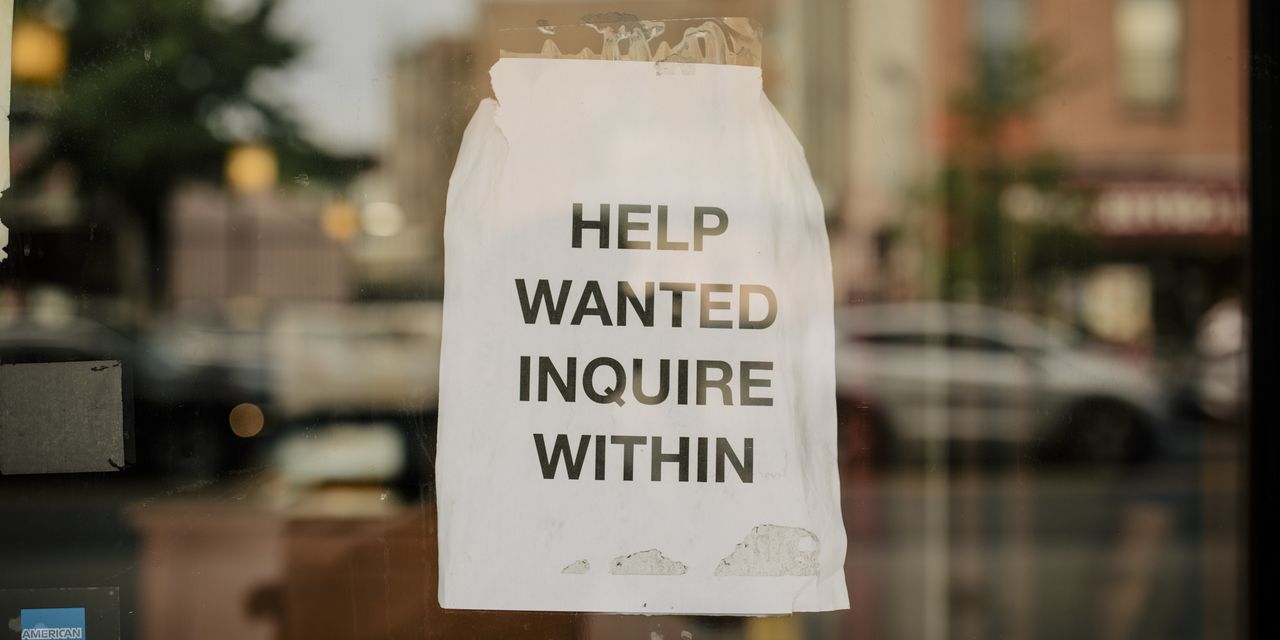
A key advisory panel on Tuesday recommended the Pfizer–BioNTech COVID-19 shots for emergency use in children ages 5 to 11, setting the stage for shots to become available to 28 million children by early November and fueling debate over the risks and rewards of vaccinating an age group that has accounted for 0.01% of COVID-19 deaths in America.
Advisers to the Food and Drug Administration voted 17-0, with one abstention, in support of the vaccines after questioning Pfizer about its data and hearing an earful from skeptics who said greenlighting the vaccine would usher in school mandates and take away parental choice.
Panel members said others would decide mandates but wondered how badly most children needed the shots.
In the end, they said they were confident that the vaccine’s benefit against health problems and societal disruptions from COVID-19 outweighed the risks of severe side effects.
“We’re going to have to find a way to live with it, and I think the vaccines kind of give us a way to do that,” said adviser Jeannette Lee, a professor of biostatistics at the University of Arkansas for Medical Sciences.
Some parents and pediatric advocates told the panel that they are tired of worrying about children’s exposure to the coronavirus at schools and restaurants and on airplanes and look forward to vaccinating them.
Vocal opponents told the advisers to “hold the line” against extending Pfizer’s emergency use authorization to an age group that has accounted for only 94 of the 737,000 COVID-19 deaths in the U.S.
“Expanding the EUA to children is unnecessary, premature and will do more harm than good,” said Josh Guetzkow, a senior lecturer at the Hebrew University of Jerusalem. “There is no emergency for children, especially healthy ones whose risk of severe illness or death is almost nil.”
Federal officials said children haven’t been spared hospitalization because of COVID-19 or related syndromes and that widespread vaccination might reduce community spread or avoid disruption to school and social routines.
Advisers did note that many children have already been infected and don’t know it, so they have some level of immunity.
The prevalence of prior infection could be as high as 40% in some places, according to studies, though officials said they don’t know whether protection would be as robust as vaccine-induced immunity.
Some advisers grumbled that they were put in a tight spot by the lack of flexibility on voting whether the benefits outweigh the risks for the age group.
“I’m torn. On one hand, we know many mothers and fathers and parents are eager to administer this vaccine to children because they’re so frightened, perhaps overly so,” said Dr. H. Cody Meissner, chief of pediatric infectious diseases at Tufts University School of Medicine. He voted for the recommendation.
“On the other hand, we saw that approximately 68% of the children that were hospitalized with COVID-19 have underlying comorbidities, which means about 32% do not. And then, if we were to take 40% of that group that may have immunity already, we’re getting down to a very small percent of otherwise healthy 5- to 11-year-old children who might derive some benefit. And we simply don’t know what the side effects are going to be,” he said.
Dr. Janet Woodcock, the acting FDA commissioner, must decide whether to accept the panel’s recommendation and authorize the shots for children ages 5 to 11.
The agency typically makes a decision within days of the advisory meetings.
A panel of advisers for the Centers for Disease Control and Prevention will meet next week to discuss the vaccine and issue recommendations on how to apply the FDA‘s decision.
The Advisory Committee on Immunization Practices could say the vaccine should be used within limited groups, though it cannot expand its use beyond the FDA‘s authorization.
CDC Director Rochelle Walensky must decide whether to accept or reject the committee’s guidance.
The Biden administration says it will be ready to distribute the vaccines to pediatricians’ offices and pharmacies once the agencies weigh in.
The children’s vaccines will come in kits with smaller doses, vials and needles than those used for adults. They will be packed with orange labels to distinguish them from adult vaccines, which have purple labels.
Doctors reported upticks in COVID-19 cases among children as the delta variant of the coronavirus took hold and society opened up, though the worst outcomes from the disease are rare among younger people.
Dr. Peter Marks, director of the FDA‘s Center for Biologics Evaluation and Research, said children usually do have better outcomes than older groups but are “far from being spared.”
About 1.9 cases of COVID-19 have been reported in the 5-11 age group, with 8,300 hospitalizations. About a third of those hospitalized required stays in intensive care units. Doctors have diagnosed 2,500 cases of a multisystem inflammatory disorder from the virus.
“There have also been close to 100 deaths, making it one of the top 10 causes of death in this age range during this time,” Dr. Marks said. “In addition, infections have caused many school closures and disrupted the education and socialization of children.”
Still, he acknowledged that the topic of COVID-19 is charged. He pleaded for civility at the outset of the daylong session.
“There are strong feelings that have clearly been expressed by members of the public, both for and against the use of the Pfizer-BioNTetch under emergency use authorization for this age group of 5- to 11-year-old children,” Dr. Marks said.
“To be clear, today’s discussion is going to be about the scientific data that are presented, and it’s not about vaccine mandates, which are left to other entities outside of FDA,” he said.
One commenter said the risks from COVID-19 vaccines were being covered up and called for more autopsies of vaccinated people who died. Another commenter said Pfizer’s relatively small trials couldn’t have caught problems that might arise once child vaccination is widespread.
Biden administration officials have focused on the potential benefits of immunizing children to fill gaps in their vaccine push. Only 57% of the U.S. population is fully vaccinated.
Dr. Anthony Fauci, director of the National Institute of Allergy and Infectious Diseases, said recent papers show that children transmit the virus as readily as adults in the “delta era,” so vaccinating them could help households and communities reach sufficient immunity levels to control the spread.
Reports of breakthrough infections are common, but data suggests the vaccines provide some protection against infection and are far better at preventing hospitalization and death from COVID-19.
Dr. Michael Kurilla, a National Institutes of Health expert who abstained from the vote, said he wasn’t convinced that vaccinating children would thwart transmission as hoped, given new variants.
Advisers pressed Pfizer to conduct a follow-up study on whether the vaccine prevents transmission from children to others. They said it could strengthen the drugmaker’s case for using their product in groups at lower risk of severe disease.
CDC presenter Fiona Havers said children ages 5 to 11 started to account for a greater share of cases when the delta variant was prominent. Children accounted for about 10.6% of all COVID-19 cases during the week of Oct. 10 but made up 8.7% of the population in the most recent census.
Obesity appeared to be a risk factor for bad outcomes among children hospitalized with COVID-19, Dr. Havers said.
She said the rates of hospitalization and death from COVID-19 are roughly equal to rates of seasonal flu, but hospitalized children might have tougher bouts of COVID-19 requiring intensive care or a ventilator.
Whether children are likely to be reinfected is an active area of investigation, Dr. Havers said, but scientists “don’t have great data on that at this point.”
Pfizer emphasized the unpredictable nature of the virus and potential risks as the nation enters colder months, when respiratory viruses proliferate.
“Severe outcomes are unpredictable and can occur in healthy children, prompting the need for broad age-based vaccination,” Dr. William Gruber, senior vice president of vaccine clinical research at Pfizer, told the FDA advisers.
Pfizer told the panel its trial compared 1,500 children who received the vaccine in two doses, three weeks apart, with 750 children who received a placebo and found the shots were 91% effective at preventing symptomatic disease.
The company will follow a broader trial group, reaching over 4,000, for any safety concerns and whether vaccine-induced antibody responses wane in the same way they do for adults, creating the case for boosters.
Side effects were mild and mirrored those in adolescents and adults, such as headache, fever or chills, he said.
Enrollment was far lower than the tens of thousands in initial trials in adults, though the company and regulators use a technique known as “immuno-bridging” to compare antibody responses and draw inferences about the vaccine’s ability.
Pfizer, whose vaccine is available to those 12 and older, is farthest along in testing the shots in children. Moderna and Johnson & Johnson are working on pediatric versions of their vaccines.
Dr. Gruber said its smaller dose worked well across age groups. Some parents of 11-year-olds wonder whether they should wait until their children turn 12 to get the larger dose.
One prominent issue in the debate is whether children are likely to have similar rates of myocarditis, or inflammation of the heart muscle, as have older age groups — especially young adult males.
Some Scandinavian countries paused the use of another messenger RNA vaccine, from Moderna, in people younger than 18 because of concerns about the condition.
Presenters described myocarditis as a “rare but important” side effect that has been documented after COVID-19 vaccination, especially in teenage and young adult males, though most cases have been mild and resolved on their own.
Boys ages 16 and 17 who received a second dose of Pfizer vaccine were most affected, at 69 cases per million doses. Myocarditis is generally diagnosed in people in their late teens, giving scientists hope it will be rarer in younger children after vaccination.
Pfizer modeled risk scenarios for the group of 5- to 11-year-olds and estimated that the vaccines could avoid nearly 59,000 cases of COVID-19, 241 hospitalizations and one death over the next six months versus 22 excess myocarditis cases.
According to a Kaiser Family Foundation poll released at the end of September, 34% of parents said they would get their children ages 5 to 11 vaccinated as soon as the shots became available. That was up from 26% in July.
Most of the September interviews were conducted before Pfizer announced positive results from its trial in children ages 5 to 11.
Another 32% said they would “wait and see” whether to vaccinate a child in that age group. About a quarter of parents, 24%, said they would “definitely not” get their children vaccinated, and 7% said they would do it only if required.
California Gov. Gavin Newsom recently announced that he will mandate the COVID-19 vaccine for schoolchildren once it is fully licensed for relevant age groups and not just authorized on an emergency basis.
The Democrat expects the approvals to track within two grade spans: seventh through 12th, and kindergarten through sixth grade.
The mandate might not take full effect until next fall, but it is already sparking debate. Some critics said Mr. Newsom needs to explain whether vaccination will mean no more COVID-19 restrictions within schools or why he wants to mandate shots for schoolchildren but not a politically influential bloc of prison guards.
“California Gov. Newsom and other governors have already indicated the intention to mandate all schoolchildren, K-12, [to get the vaccine] following approval,” said public commenter Kim Witczak. “It must be exceedingly difficult to vote your conscience when it seems all the decisions have already been made for you.”








